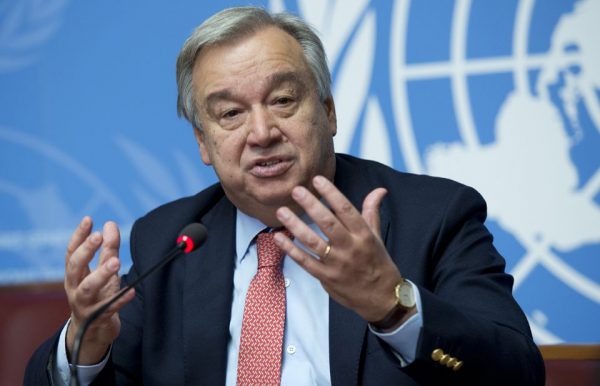BY DAYO ADESULU
For this year’s World Mental Health Day, the WHO global theme is ‘Mental health care for all: Let’s make it a reality. Over the past year, there is no doubt that the COVID-19 pandemic has had a major impact on the mental health of millions across the world, especially health and other frontline workers, people living alone, and persons with pre-existing mental health conditions. Moreover, at a time when mental, neurological and psychosocial support services were perhaps most needed, there were significant disruptions to essential health care, including mental health services at all levels, owing to the COVID-19 pandemic.
However, there remains a cause for optimism – with COVID-19 vaccine coverage improving, more people are accessing health services, including for mental health. Moreover, during the World Health Assembly 2021, governments from around the world recognized the need to scale up quality mental health services at all levels – a task towards which WHO continues to strive alongside governments worldwide, including in Somalia.
Somalia has particularly been impacted by mental health challenges owing to decades of protracted conflict, which has severely disrupted social cohesion, broken down social norms and led to nearly one in every three Somalis suffering from some form of mental health condition. In response, the Federal Government of Somalia and United Nations (UN) in Somalia joined forces to reiterate support for this year’s World Mental Health Day theme, as well as to convey one additional key message specific to Somalia: take bold steps and offer quality mental health care and services in the country.
“We all have a role to play in supporting one another as a society and to make mental health a reality in Somalia,” said HE. Dr Fawziya Abikar Nur, the Minister of Health and Human Services of Somalia. “We can support people, and listen to them, and their friends and relatives, who have been the worst victims of violence and conflict for years. We can also work with them so that they discuss their mental health problems with health care workers in confidence and also advocate and mobilize for quality mental health care services to be available at all levels, including at the primary level.”
We all have a role to play in supporting one another as a society and to make mental health a reality in Somalia
The Honorable Minister added that communities needed to drop the stigma around mental health, seek the right support, and speak about their issues more openly to manage stress and improve people’s well-being.
To address these challenges, the Federal Government has worked with WHO to develop a mental health strategy for 2019-2022 and is currently finalizing a mental health policy. Also, with support from the UN Peacebuilding Fund from 2020-2021, and in a partnership between the International Organization for Migration (IOM), the United Nations Children’s Fund (UNICEF), Somali National University and WHO, the Federal Government has been leading the implementation of a mental health project in the context of ‘health for peace’ with focus in Baidoa, Kismayo, Dollow, Galkaayo and Mogadishu. This project has supported health care workers to understand, address and provide more care for people in need of mental health support, as well as raise awareness about mental health issues. The project is also generating evidence on the interlinkage between mental health and peace, a topic that has not been well researched or studied anywhere in the world.
“Now more than ever, Somalis need mental health support. As a resilient society, Somalis have endured the effects of protracted conflict, and one health emergency after another,” said Dr Mamunur Rahman Malik, WHO Representative to Somalia. “Together with the Federal Government and partners, we are making sure that the WHO Mental Health Gap Action Programme is integrated at all levels of care, especially at the community and primary level care.”
“The conflict in Somalia is impacting millions of children. Continued exposure to violence, fear and uncertainty can have a shattering impact on their behaviour, learning, emotional and social development for years,” said UNICEF Somalia Representative, Mohamed Ayoya. “It is our collective job and responsibility to help these children recover and regain some sense of normalcy. Together with the Ministry of Health, WHO and partners, UNICEF is providing children – who have witnessed extreme violence and loss – mental health and psychosocial support.”
“No health system can be fair unless it provides mental health services to those who need them the most, so UNDP Somalia supports counselling and mediation for vulnerable groups, including women who face violence and families dealing with conflict,” said Jocelyn Mason, UN Resident Coordinator a.i. and UNDP Somalia Resident Representative.
During this year’s World Mental Health Day, the WHO country office for Somalia stands firmly behind the global theme of ‘Mental health care for all: Let’s make it a reality’ and will continue to work closely with the government and all partners to scale up quality mental health services at all levels across Somalia


